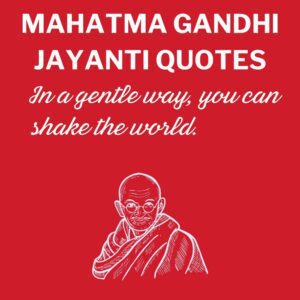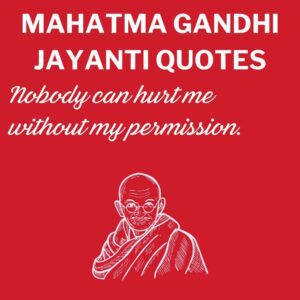Mahatma Gandhi Jayanti: A Celebration of Peace and Harmony
Mahatma Gandhi Jayanti is a significant day in India that commemorates the birth anniversary of Mahatma Gandhi, one of the most revered figures in history. Celebrated on the 2nd of October every year, this day serves as a tribute to Gandhi’s philosophy of non-violence, truth, and peaceful resistance. The observance of Mahatma Gandhi Jayanti not only reflects on Gandhi’s life but also serves as a reminder of his principles and values that continue to inspire millions worldwide.
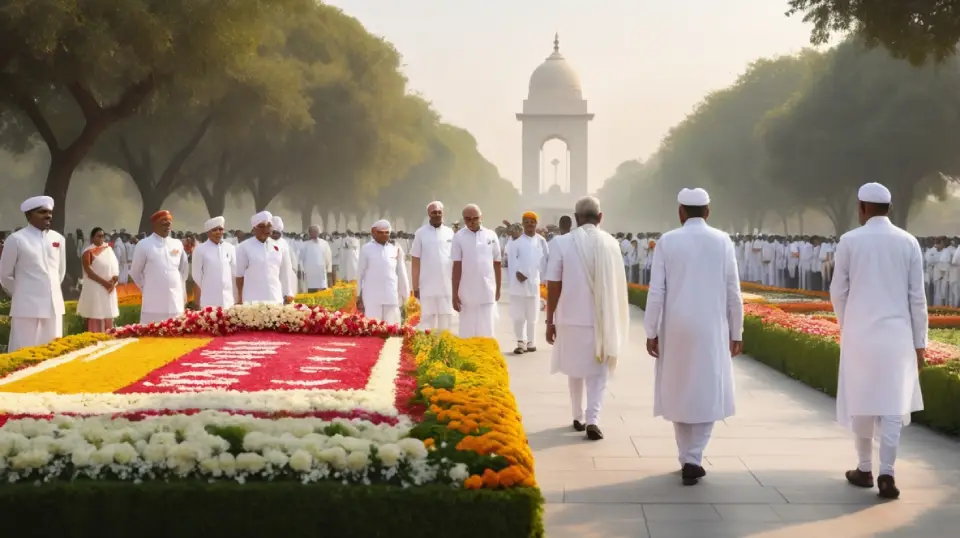
- Thursday, 2 October 2025
- Friday, 02 October 2026
- Saturday, 02 October 2027
- Monday, 02 October 2028
Mahatma Gandhi Jayanti is a day of great importance for the Indian nation and its people. It serves as a platform to reflect upon the life, teachings, and contributions of Mahatma Gandhi, also known as the “Father of the Nation.” Let’s dive deeper into the various aspects of this auspicious day:
The Birth of a Visionary Leader
On October 2nd, 1869, in Porbandar, Gujarat, Mohandas Karamchand Gandhi was born into a devout Hindu family. Later known as Mahatma Gandhi, he went on to become one of the most iconic figures in the world. His ideologies and principles have influenced many leaders and movements globally, shaping the course of history.
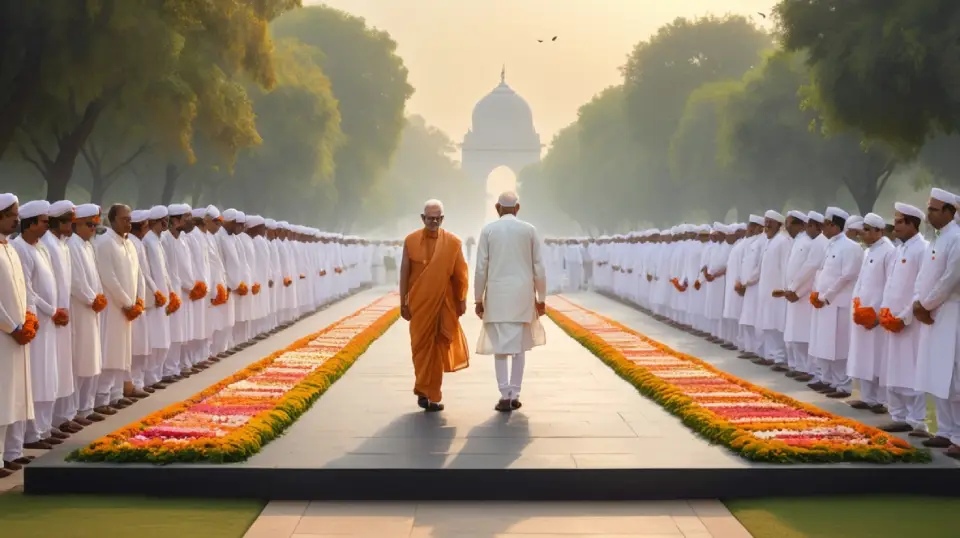
The Philosophy of Non-Violence (LSI: Ahimsa)
Gandhi’s most significant contribution was his philosophy of non-violence, also known as “Ahimsa.” He firmly believed in the power of truth and non-violent resistance as a means to achieve justice and social change. Ahimsa became the guiding principle for his leadership and played a pivotal role in India’s struggle for independence from British rule.
The Salt March and Civil Disobedience Movement
One of the pivotal moments in Gandhi’s journey was the Salt March, also known as the Dandi March, which took place from March to April 1930. This act of civil disobedience was a protest against the British monopoly on salt production. Gandhi led a group of supporters on a march to the Arabian Sea, where they symbolically produced salt, challenging the unjust laws imposed by the British government.
Satyagraha: The Power of Truth
Satyagraha, meaning “truth force” or “soul force,” was another core principle of Gandhi’s philosophy. It emphasized the use of non-violent resistance to fight against injustice. Through Satyagraha, Gandhi encouraged individuals to confront oppressive systems with love, compassion, and truth, ultimately transforming the hearts and minds of both oppressors and the oppressed.
Mahatma Gandhi’s Impact on India’s Independence
Gandhi’s tireless efforts and unwavering commitment to non-violence played a pivotal role in India’s struggle for independence. He mobilized millions of Indians from different backgrounds, uniting them in a peaceful resistance against British colonial rule. His leadership and ability to inspire and galvanize the masses eventually led to India’s independence on August 15, 1947.
The Teachings and Legacy of Mahatma Gandhi
Even after his passing on January 30, 1948, Mahatma Gandhi’s teachings and principles continue to inspire and guide people around the world. His advocacy for human rights, equality, and social justice remains a beacon of hope, reminding us of the power of peace, unity, and non-violence.
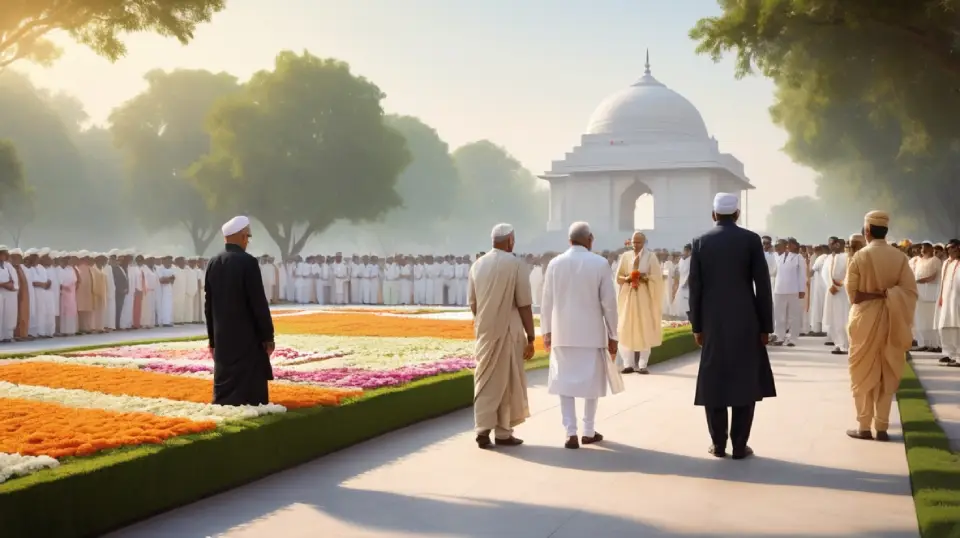
FAQ’s (Frequently Asked Questions)
Q: What is the significance of Mahatma Gandhi Jayanti?
Mahatma Gandhi Jayanti holds immense significance as it honors the birth anniversary of Mahatma Gandhi, one of the most influential leaders in history. It serves as a reminder of his philosophy of non-violence, truth, and peaceful resistance, inspiring individuals to strive for a more just and harmonious society.
Q: How is Mahatma Gandhi Jayanti celebrated in India?
Mahatma Gandhi Jayanti is celebrated throughout India with great enthusiasm and reverence. People pay homage to Gandhi by visiting his memorial, participating in prayer services, and organizing events that promote his ideals. The day often involves cultural programs, speeches, and discussions on Gandhi’s life and teachings.
Q: Are there any specific traditions associated with Mahatma Gandhi Jayanti?
On Mahatma Gandhi Jayanti, people often participate in prayer meetings and engage in activities that reflect Gandhi’s principles, such as spinning cotton thread (symbolizing self-sufficiency) and organizing blood donation drives. The day also serves as an opportunity to reflect on personal and societal changes that can foster peace and justice.
Q: What is the international significance of Mahatma Gandhi Jayanti?
Mahatma Gandhi’s impact extends far beyond India’s borders. He remains an international symbol of peace, non-violence, and resistance against injustice. His teachings have influenced various civil rights movements and inspired leaders such as Martin Luther King Jr. and Nelson Mandela in their fight for equality and freedom.
Q: How can we incorporate Gandhi’s principles in our daily lives?
We can incorporate Gandhi’s principles by practicing non-violence in our interactions, promoting truth and honesty, and standing up against injustice. Gandhi believed in the power of individuals to create positive change through their actions and choices, reminding us that each person has the ability to contribute to a more peaceful and equitable world.
Q: What is the legacy of Mahatma Gandhi today?
Mahatma Gandhi’s legacy continues to inspire and guide individuals across the globe. His principles of non-violence, truth, and social justice resonate with those seeking a more inclusive and compassionate world. Gandhi’s teachings remind us that transformative change starts from within and can be achieved through peaceful means.
Q: When is mahatma gandhi jayanti 2023?
The mahatma gandhi jayanti will be celebrated on Monday, october 2, 2023.
Mahatma Gandhi Jayanti is a momentous occasion that pays tribute to the extraordinary life and legacy of Mahatma Gandhi. This day serves as a reminder of his philosophy of non-violence, truth, and the pursuit of justice. Gandhi’s teachings continue to inspire generations, offering a timeless message of hope, unity, and peaceful resistance. Let us honor his memory by embracing his principles and working towards a world guided by love, compassion, and equality.
Mahatma gandhi jayanti quotes:
- Be the change you wish to see in the world.
- In a gentle way, you can shake the world.
- The best way to find yourself is to lose yourself in the service of others.
- An eye for an eye only ends up making the whole world blind.
- Happiness is when what you think, what you say, and what you do are in harmony.
- The future depends on what you do today.
- The weak can never forgive. Forgiveness is the attribute of the strong.
- Strength does not come from physical capacity. It comes from an indomitable will.
- Live as if you were to die tomorrow. Learn as if you were to live forever.
- You must be the change you wish to see in the world.
- The best way to find yourself is to lose yourself in the service of others.
- The power to question is the basis of all human progress.
- You may never know what results come of your actions, but if you do nothing, there will be no results.
- Freedom is not worth having if it does not include the freedom to make mistakes.
- The weak can never forgive. Forgiveness is an attribute of the strong.
- First they ignore you, then they laugh at you, then they fight you, then you win.
- An ounce of practice is worth more than tons of preaching.
- There is more to life than increasing its speed.
- You don’t know who is important to you until you actually lose them.
- Hate the sin, love the sinner.
- Nonviolence is the first article of my faith. It is also the last article of my creed.
- Intolerance is itself a form of violence and an obstacle to the growth of a true democratic spirit.
- The best way to find yourself is to lose yourself in the service of others.
- To give pleasure to a single heart by a single act is better than a thousand heads bowing in prayer.
- It is easy enough to be friendly to one’s friends. But to befriend the one who regards himself as your enemy is the quintessence of true religion.
- The difference between what we do and what we are capable of doing would suffice to solve most of the world’s problems.
- Nonviolence is not a garment to be put on and off at will. Its seat is in the heart, and it must be an inseparable part of our being.
- The greatness of humanity is not in being human, but in being humane.
- True beauty lies in the purity of the heart.
- The best way to find yourself is to lose yourself in service to others.
- There is no path to peace. Peace is the path.
- The enemy is fear. We think it is hate, but it is fear.
- Nobody can hurt me without my permission.
- A small body of determined spirits fired by an unquenchable faith in their mission can alter the course of history.
- A man is but the product of his thoughts. What he thinks, he becomes.
- To believe in something, and not to live it, is dishonest.
- Strength does not come from physical capacity. It comes from an indomitable will.
- There is more to life than simply increasing its speed.
- Satisfaction lies in the effort, not in the attainment. Full effort is full victory.
- The best way to find yourself is to lose yourself in the service of others.
- You must not lose faith in humanity. Humanity is an ocean; if a few drops of the ocean are dirty, the ocean does not become dirty.
- The greatness of a nation can be judged by the way its animals are treated.
- A ‘No’ uttered from the deepest conviction is better than a ‘Yes’ merely uttered to please, or worse, to avoid trouble.
- Honest disagreement is often a good sign of progress.
- Live as if you were to die tomorrow. Learn as if you were to live forever.
- The best way to find yourself is to lose yourself in the service of others.
- It is health that is real wealth and not pieces of gold and silver.
- Even if you are a minority of one, the truth is the truth.
- The future depends on what you do today.
- In the midst of darkness, light persists.

